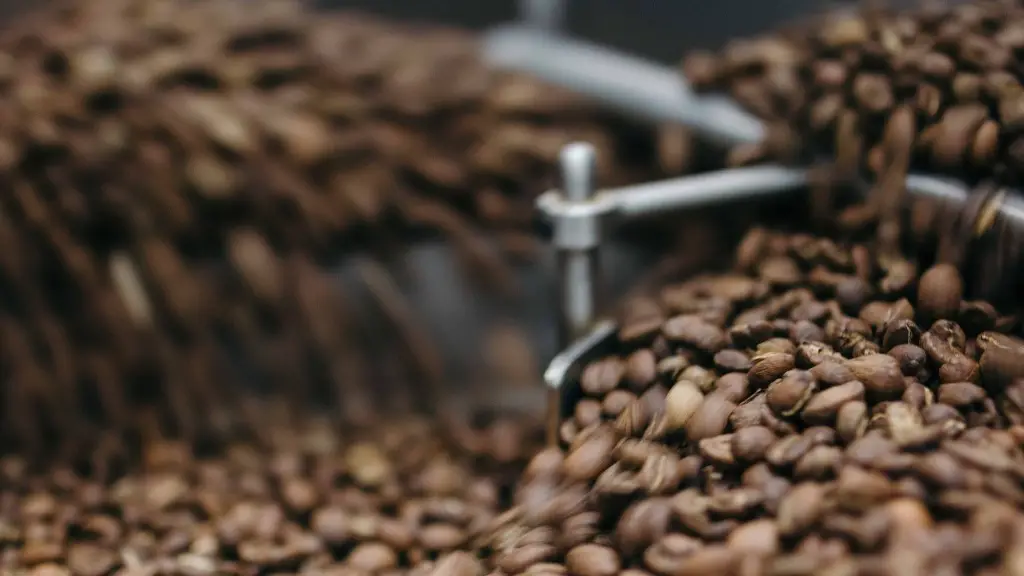Can you Drink Coffee with Sweetener while Intermittent Fasting
Intermittent fasting has become an increasingly popular lifestyle choice over the past years. It has been promoted to help people improve their health and lose weight, and for this reason, it has become an attractive and exciting option for those looking to lead a healthier lifestyle. However, it isn’t as simple as skipping breakfast and lunch and expecting results. There are a lot of considerations when factors such as coffee, sweeteners, and calorie intake are included in the equation.
It’s important to remember that intermittent fasting isn’t just about restricting calories. It’s about resetting the body and allowing it to rest and repair itself, which is why it’s important to be thoughtful about what and how much you intake during the window of time when you are not fasting.
According to experts, one important thing to consider is what kind of sweetener you opt for when consuming coffee while intermittent fasting. Sugary sweeteners are not allowed as they break the fast, as they are ultimately providing calories to the body. However, there are a large variety of artificial sweeteners available that are considered to be ok to consume while fasting. Artificial sweeteners such as aspartame, sucralose, saccharin, and stevia are known as zero-calorie sweeteners, meaning they do not contribute energy to the body during a fasting period.
By adding them to coffee, there will be no detrimental effect on your blood sugar levels and your body will remain in the fasted state. But, although they are more acceptable than sugar, there are mixed opinions on the effect they can have on the gut. Furthermore, there is also research to show that artificial sweeteners can be habit-forming and have an obesogenic effect on the body, meaning they can cause a person to crave more sweet food in the future. Therefore, it is suggested you limit the consumption of artificial sweeteners during fasting periods.
Furthermore, caffeine can be consumed during intermittent fasting, as long as the consumption does not break the calorie limit. However, it is further recommended to limit your caffeine intake to the morning hours of fasting, as the stimulation of caffeine, combined with the lack of supplementary nutrition, can make for a tough afternoon. Therefore, if drinking coffee with sweetener during your intermittent fasting, it is important to remember that not all sweeteners are equal, as well as avoiding excess caffeine.
Effect of Sweetener on Gut
There is limited research available when it comes to the effect of artificial sweeteners on our gut health. Some experts claim there are potential risks while others state that they bear no harm. A lot of the discussion is based on subjective opinion rather than objective research. It is best to bear in mind that artificial sweeteners may impact our gut health, and so be mindful of the quantity in which you are consuming them.
That being said, there is ample evidence that reveals sugar and artificial sweeteners have distinct metabolic differences. Artificial sweeteners carry considerably fewer calories than sugar, and are not responsibloe for spiking our blood sugar in the same way natural sugars do. Therefore, we can be confident that artificial sweetener intake during fasting windows will result in less of a disturbance to metabolic processes than other sweeteners.
While it is important to be cognizant of the possible effect on our gut, it is also useful to consider the fact that artificial sweeteners still offer an element of enjoyment with our coffee or tea experience, albeit with less calories. Therefore, if careful with the amount consumed, artificial sweeteners are a better alternative to natural sugars when fasting.
Benefits of Intermittent Fasting
Intermittent fasting can offer a multitude of health benefits. Those who have implemented intermittent fasting into their diet regularly have reported a number of advantages associated with their choice, including:
- Increased energy throughout the day
- Weight loss
- Improved lean muscle mass
- Reduced inflammation
- Improved psychological health
- Reduced risk of chronic diseases
Adding in a lifestyle of intermittent fasting, alongside the practice of mindful eating, means that people can enjoy a broader range of foods, feel good about their bodies, and find other holistic benefits for their health overall.
Limitations of Intermittent Fasting
Whilst there are many potential positive aspects to intermittent fasting, it is important to remember that everybody is different and that it is not for everyone. It is recommended for those who are looking for a way to improve their mental and physical health, however there are always certain precautions to take before changing diets and lifestyles.
Those that suffer from diabetes, have eating disorders, take certain medications, have health issues, or are breastfeeding should consult their doctor before undergoing intermittent fasting.
In addition, it is important to remember that intermittent fasting needs to be backed up with a healthy diet to ensure you’re getting the right nutrients in. Using coffee with sweetener during a fast can provide you with a tasty beverage experience, but this should not be a substitute for consuming essential nutrients.
Coffee as part of a Healthy Diet
Coffee can be a great way to start the day, especially when done mindfully and with the right accompaniments. Those drinking coffee with natural sweeteners should look for coffee formulas with added minerals and vitamins, to ensure that the body gets the right nutrition alongside their coffee consumption.
If you don’t want to use sweeteners, adding in coconut milk, almond milk, oat milk, or lactose-free milk, can make for a creamy, yet calorie-free, addition to your coffee. Alternatively, you can opt for black coffee for a healthy, yet energising start to the day.
Final Thoughts
To summarise, coffee with sweetener during intermittent fasting is possible. There are a variety of different sweeteners available, and although some may cause more harm than good on the gut, the most important factor is to ensure that your intake does not break the calorie count and result in the fast being broken.
Ultimately, if you’re looking to re-energise and get the best health benefits out of your intermittent fasting, opt for natural sweeteners and limit your caffeine and artificial sweetener consumption. Furthermore, remember to take care of your body with a healthy and consistent diet, and if you’re unsure, talk to your doctor beforehand.




